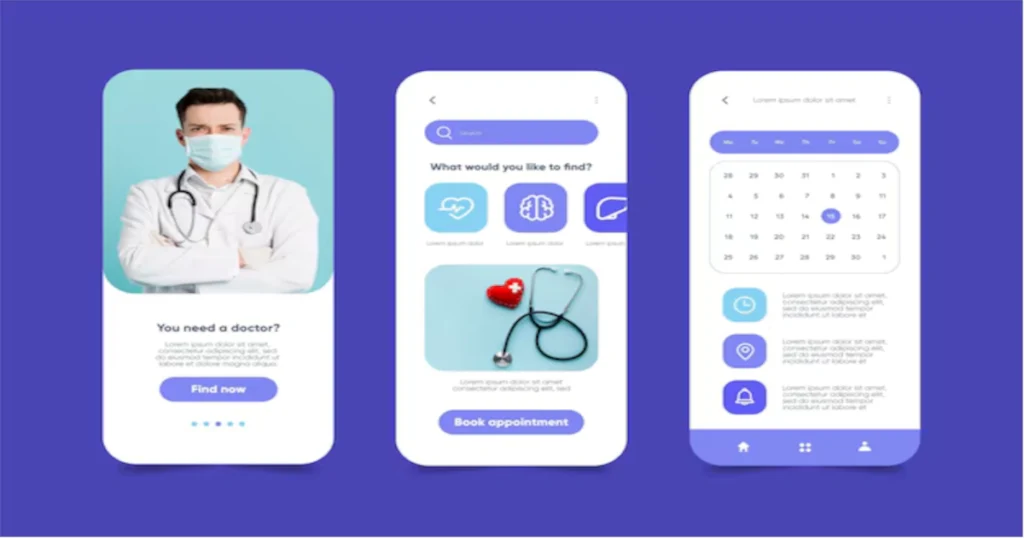Introduction: What is a Health Journal App?
In today’s fast-paced world, tracking our health has never been more critical. Whether it’s monitoring daily activities, tracking nutrition, or keeping tabs on mental well-being, the digital age has brought with it tools that can streamline this process. One of the most effective tools to manage and track your health is a health journal app. These apps not only help you document your health journey but also provide insights and analytics to make informed decisions about your well-being. In this article, we’ll dive deep into health journal apps, their benefits, and how to make the most out of them.
What is a Health Journal App?
A health journal app is a digital tool designed to help individuals track, record, and analyze various aspects of their health. These apps typically offer features such as fitness tracking, nutrition logs, sleep monitoring, mental health assessments, and more. The main advantage of using such an app is that it consolidates all health data in one place, making it easier for users to track progress, spot trends, and make informed decisions about their lifestyle.
Why Should You Use a Health Journal App?
Tracking health data can feel overwhelming, but health journal apps simplify the process. Here are some reasons why you should consider using a health journal app:
1. Effortless Tracking of Health Metrics
Health journal apps allow users to track a variety of health metrics such as weight, physical activity, food intake, sleep, and even mood. With this data in one place, users can see how different aspects of their life influence their health.
2. Increased Motivation and Accountability
By documenting health goals and daily activities, a health journal app can act as a source of motivation. It encourages consistency by holding users accountable for their actions, helping them stay on track with their wellness goals.
3. Personalized Health Insights
Many health journal apps use the data you enter to provide personalized insights. These apps can offer suggestions based on your habits, analyze trends, and help you make healthier choices. Whether you want to lose weight, reduce stress, or improve fitness levels, these apps can provide tailored advice.
4. Convenience and Accessibility
Health journal apps are mobile, meaning you can access your health records anytime, anywhere. No need for physical journals or tracking sheets that might get lost or damaged. Everything you need is right on your phone or tablet.
Key Features to Look for in a Health Journal App
Not all health journal apps are created equal. When choosing the best app for your health needs, it’s important to look for certain features. Here are some key features to consider:
1. Customizable Health Categories
A good health journal app should allow you to track a variety of health-related data points. This could include:
- Exercise and physical activity (steps, workouts, distance, etc.)
- Diet and nutrition (calories, macronutrients, hydration, etc.)
- Sleep patterns (hours of sleep, quality of sleep, etc.)
- Mental health (mood, stress levels, meditation, etc.)
2. Data Visualization and Reports
Graphs, charts, and reports are incredibly useful for understanding patterns over time. The best health journal apps should provide visual representations of your data to help you track progress easily and recognize trends that may require attention.
3. Integration with Other Apps
Many health journal apps integrate with other health and fitness apps or devices like fitness trackers, smartwatches, and nutrition apps. Integration is key because it allows for seamless data synchronization, providing a holistic view of your health.
4. Cloud Backup and Security
Health data is sensitive, and you want to ensure that your information is safely backed up. Choose an app that offers cloud backup and strong security measures, so you never lose track of your data.
5. User-Friendly Interface
The best health journal apps are intuitive and easy to navigate. Whether you’re entering your daily workout routine or updating your food intake, the app should have a simple, clean interface that makes tracking effortless.
Benefits of Using a Health Journal App for Mental and Physical Wellness
1. Enhanced Mindfulness and Mental Health Tracking
Health journal apps aren’t just about tracking physical metrics; they also provide powerful tools for monitoring your mental health. Regular mood tracking, stress levels, and mindfulness activities can be recorded, providing you with insights into your emotional well-being.
2. Improved Sleep Quality
Many health apps offer features that help you track sleep quality, including sleep duration, sleep cycles, and disturbances during the night. By monitoring these metrics, you can identify potential issues and make adjustments for better rest.
3. Better Nutrition and Weight Management
With features like meal logging, calorie counting, and macronutrient breakdowns, health journal apps can be invaluable tools for weight management. Tracking your diet and food intake allows you to make healthier eating choices, stay accountable, and even spot nutrient deficiencies.
4. Increased Physical Activity
Tracking physical activity motivates users to move more. Health journal apps can help you set fitness goals, track exercise routines, and monitor progress. Whether you’re training for a marathon or aiming to walk 10,000 steps a day, these apps provide the data you need to stay consistent.
Popular Health Journal Apps You Should Consider
If you’re ready to dive into the world of health journaling, here are some popular apps that could help you on your journey.
1. MyFitnessPal
MyFitnessPal is one of the most popular health journal apps on the market. It focuses heavily on diet and nutrition tracking, offering a vast database of foods, recipes, and exercises. It also syncs with fitness trackers and provides detailed reports on your calorie intake and expenditure.
2. Headspace
For mental health and mindfulness, Headspace is an excellent option. While it’s primarily a meditation app, it also allows users to track their mood and overall mental well-being. The app offers guided meditations, mindfulness activities, and progress tracking tools to enhance emotional health.
3. Fitbit
Fitbit isn’t just a fitness tracker—it also includes a comprehensive health journal app. Sync your Fitbit device with the app to track your physical activity, sleep patterns, and even heart rate. The app also provides insights into your daily habits, helping you set achievable goals.
4. Daylio
Daylio is a simple yet powerful mood tracking app that allows you to log your mood and activities throughout the day. It’s a great way to track your mental health and identify patterns related to your emotional state. Over time, Daylio can help you recognize triggers and make positive changes.
How to Make the Most of Your Health Journal App
1. Set Realistic Goals
When using a health journal app, it’s important to set realistic and achievable goals. Whether you’re aiming to lose weight, improve your fitness, or manage stress better, start small and gradually build on your successes. Avoid setting goals that feel overwhelming or unachievable.
2. Consistency is Key
Tracking your health daily is essential for accurate data analysis. Consistency helps you identify patterns, track progress, and make adjustments when needed. Even on days when you don’t feel like updating your journal, try to log your activity, even if briefly.
3. Review Your Data Regularly
Health journal apps offer a wealth of data, but reviewing it regularly is what will help you make informed decisions. Make a habit of checking your stats weekly or monthly, reviewing trends, and adjusting your goals or habits as needed.
4. Stay Open to Adjusting Your Habits
Your health journey is an evolving process. If your health journal reveals patterns that require change—whether it’s in your diet, exercise routine, or mental health habits—be open to making adjustments. The data you gather is only useful if you use it to improve your habits.
Conclusion: Is a Health Journal App Right for You?
Whether you’re looking to improve your physical fitness, monitor your mental health, or simply track your daily activities, a health journal app can serve as a powerful tool to help you stay on top of your wellness goals. With the right features, a user-friendly interface, and regular use, a health journal app can be a game-changer in managing and improving your overall health. So, choose an app that suits your lifestyle, and start documenting your journey toward better health today!
Frequently Asked Questions (FAQs)
What are the benefits of using a health tracking app?
Using a health tracking app offers several benefits, such as the ability to monitor physical activities, nutrition, sleep patterns, and mental health all in one place. These apps help you stay consistent with your wellness goals by providing real-time data and personalized insights. Additionally, they offer motivation and accountability, which can make it easier to maintain a healthier lifestyle. The ability to track progress over time also enables users to spot trends and make adjustments to improve their health.
Can a health journal app help improve mental well-being?
Yes, many health journal apps include features designed to track and improve mental health. By logging your mood, stress levels, and mindfulness activities, these apps can help you identify triggers, assess emotional well-being, and make adjustments to improve your mental state. Regularly tracking your emotions and activities can also help foster self-awareness and mindfulness, which are key components of managing stress and maintaining mental balance.
Are there any health apps that integrate with fitness trackers?
Absolutely! Several health apps seamlessly integrate with popular fitness trackers and smartwatches, such as Fitbit, Apple Watch, and Garmin. These integrations allow users to sync data such as steps, heart rate, sleep patterns, and exercise routines. This synchronization provides a more comprehensive view of your overall health, making it easier to track progress and set new goals based on accurate, real-time data.
How do I choose the best health app for my needs?
When choosing the best health app for your needs, consider factors such as ease of use, features, and whether the app supports the health metrics you’re interested in tracking. For instance, if you want to focus on weight management, look for an app that tracks nutrition and exercise. If mental health is your priority, choose an app that includes mood logging and mindfulness exercises. It’s also important to check if the app syncs with your fitness tracker or other devices for a more holistic view of your health.
Are health journal apps secure and safe to use?
Most health journal apps are designed with user security in mind, offering features like encrypted data storage and cloud backup to protect your personal information. However, it’s essential to read the privacy policy and terms of service for any app you choose. Look for apps that clearly state how your data is used and ensure that your information is only accessible to you unless you choose to share it. Security features like two-factor authentication (2FA) can also provide extra layers of protection.
Can a health journal app help me with weight loss goals?
Yes, many health journal apps are great tools for weight loss. They allow you to track your food intake, monitor calorie consumption, and log physical activities, which are all essential components of a weight loss plan. By tracking your progress and identifying areas for improvement, these apps can help you stay accountable and make healthier choices. Some apps also provide nutritional insights and suggest ways to adjust your diet and exercise routine to meet your weight loss targets more effectively.
READ ALSO: Discover Gilboa, NY: A Hidden Gem in the Catskills for Nature Lovers and History Enthusiasts







